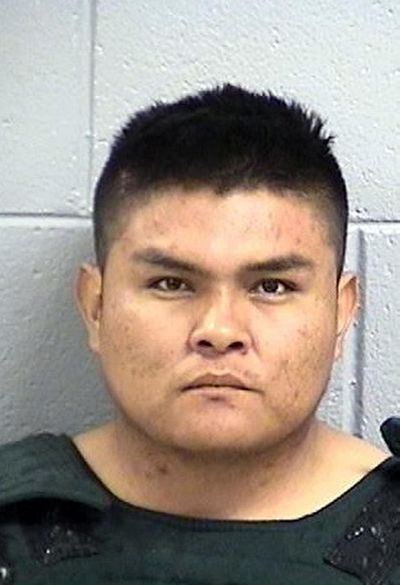Killer of Navajo Nation girl gets life prison sentence

ALBUQUERQUE, N.M. – A man who pleaded guilty to the murder and sexual assault of an 11-year-old girl on the largest American Indian reservation was sentenced Friday to life in prison in a case that drew national attention over abducted Native American children.
Tom Begaye was sentenced by U.S. District Judge William P. Johnson in Albuquerque, New Mexico, for the May 2016 killing of Ashlynne Mike on the Navajo Nation.
Her abduction and killing prompted calls to expand the Amber Alert missing child notification system and the death penalty to U.S. tribal communities. The alert system has not been fully adopted.
Begaye stood motionless as Mike’s mother, Pamela Foster, called him a “monster” who took away her daughter.
“I have tried to get up each day on a positive note, and this is not possible because I still miss my sweet baby,” Foster said.
Prosecutors said Begaye lured Ashlynne and her younger brother into his van after the pair got out of school.
After realizing they were in danger, the siblings “reached out discreetly and held hands” before Begaye took Ashlynne from the van to a secluded desert area, where he raped her and killed her with a crowbar, prosecutor Niki Tapia-Brito said.
Tapia-Brito said Begaye then left the boy near the famed Shiprock rock formation that rises more than 1,500 feet above the isolated desert spot. The boy found his way to a highway, Tapia-Brito said.
Ashlynne was reported missing, but an Amber Alert that would have sent information about missing children via cellphone messages and information to the media did not go out until the next day.
Her body was later found in an area near the Arizona-New Mexico border.
Begaye agreed in August to plead guilty and faced a mandatory life sentence without parole.
James Loonam, Begaye’s lawyer, said his client is intellectually disabled and was regularly beaten as a child. That information was provided in court not as an excuse for Begaye’s actions but as an effort to “make peace” and protect children in the future, Loonam said.
The death led to pending federal legislation that would expand the Amber Alert system to tribal communities and calls for Navajo Nation to end its opposition to the death penalty.
Republican Sen. John McCain of Arizona introduced legislation in April that would expand the notification system. He said more than 7,700 American Indian children are listed as missing in the U.S.
Navajo Nation president Russell Begaye, who is not related to Tom Begaye, said all cellphone companies are part of the Amber Alert system on the reservation but the tribe’s police districts do not have the equipment yet to fully participate.
Russell Begaye told the Associated Press he informed prosecutors that the tribe would have supported the death penalty for Tom Begaye.
“This particular case I was surprised, actually,” Begaye said. “I was thinking the U.S. attorney general would say yeah, this one deserves the death penalty.”
Elizabeth Martinez, a spokeswoman for the U.S. Attorney’s Office in New Mexico, said in a statement that the U.S. attorney general decides whether or not to seek the death penalty based on the recommendation of the U.S. attorney and after carefully considering the defendant’s background
“In this case, the attorney general decided against seeking the death penalty,” Martinez said.
The Navajo Nation and many other Native American tribes oppose the death penalty.
American Indian tribes for decades have been able to tell federal prosecutors if they want a death sentence considered for certain crimes on their land. Nearly all have rejected that option.
Tribes and legal experts say the decision goes back to culture and tradition, past treatment of American Indians and fairness in the justice system.
Legal experts say they are aware of only one tribe, the Sac and Fox Nation of Oklahoma, that has supported it.